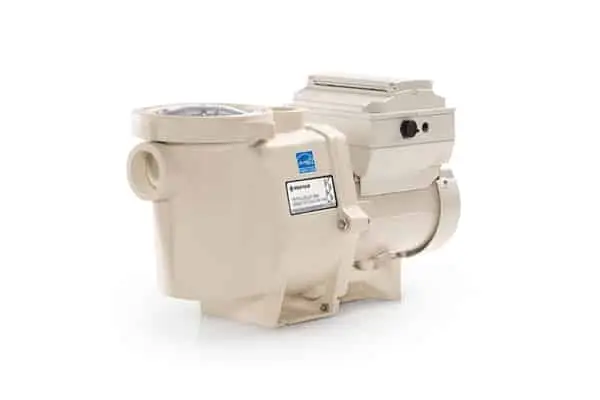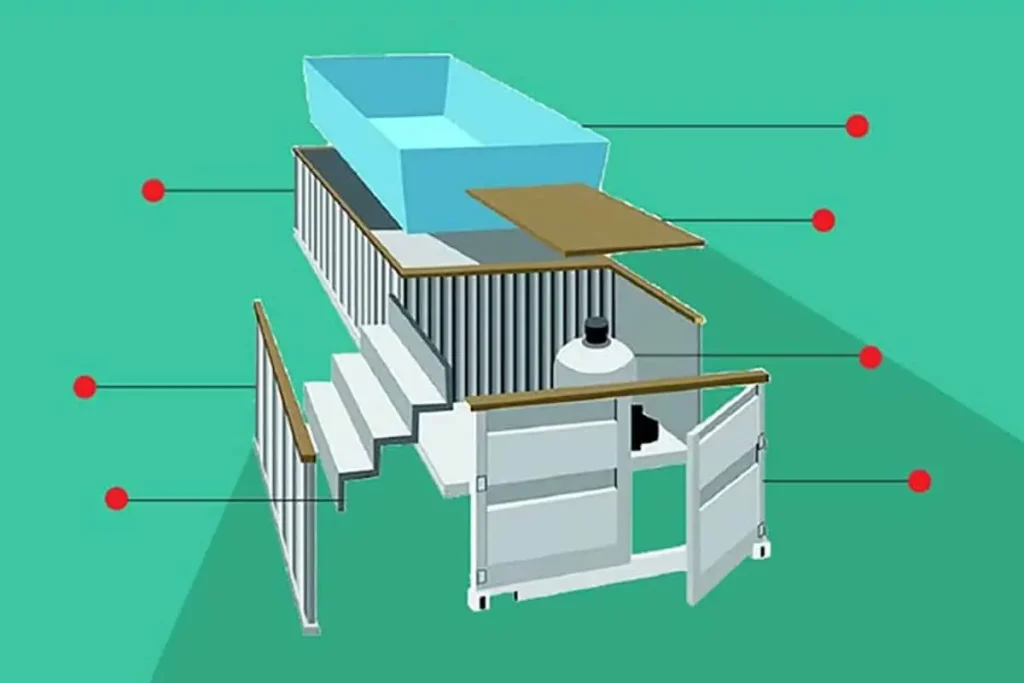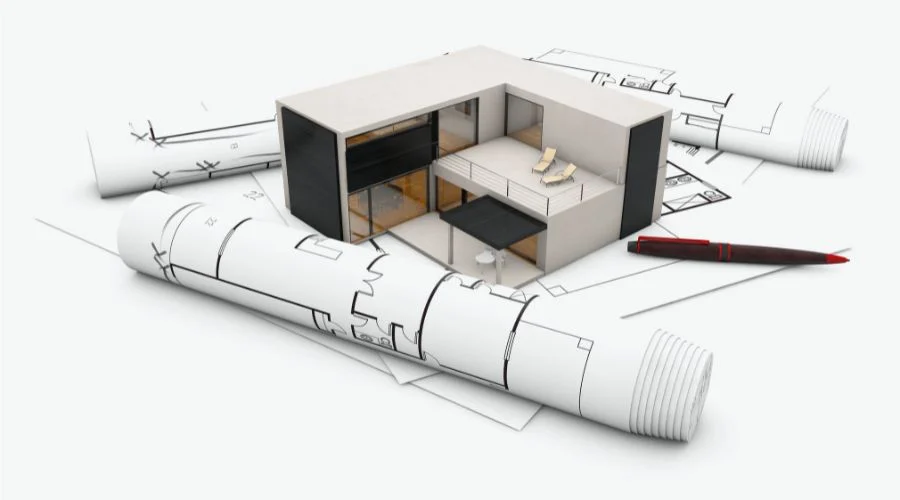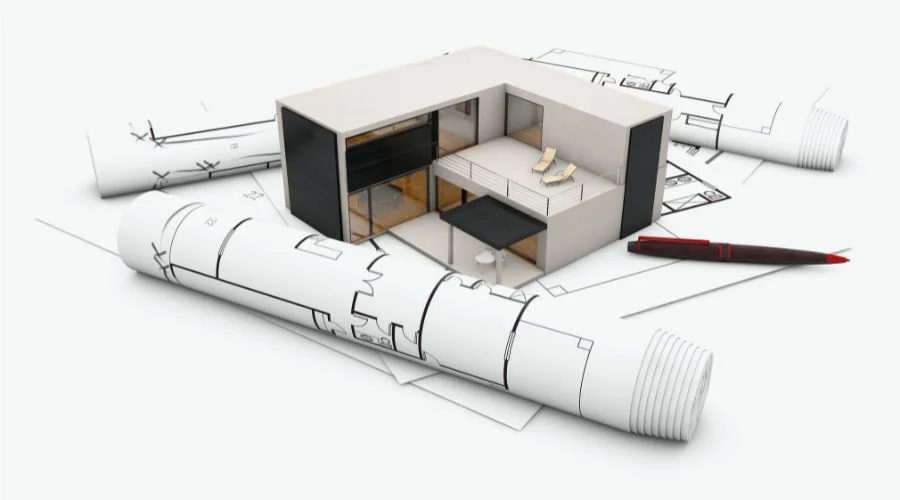Modular homes are one of the best options for home buyers. Not only have they been growing in popularity, but they also offer a cheaper alternative to home ownership. However, does this seem too good to be true? Many have concerns that modular homes are not up to the same standards as stick-built homes. The truth is that modular homes are just as safe as traditional build homes and should not be confused with mobile home production.
Modular homes are prefabricated homes built in a factory and then assembled on-site at the permanent foundation, usually made of concrete. Essentially, instead of building on-site, the house is built in a factory.
Why Modular Homes Are Safe?
Modular homes are safe for a variety of different reasons. While there are some complications when it comes to securing a loan for a modular home, the build quality matches that of a stick-built home. Here are some of the key reasons why modular homes are safe.

Adherence to Regulatory Standards and Inspections
Modular homes adhere closely to local, state, and national building codes. Modular homes must comply with the same safety standards as traditional stick-built homes. They also must go through multiple inspection processes to ensure they are built to the highest standards. During the construction process of a manufactured home, a series of inspections are typically conducted such as:
- First inspection: Before the house is built. Includes the site of the house and materials.
- Second inspection: During the construction phase. Inspection of the house as it comes together in the factory.
- On-site inspection: When the home is delivered to its location an inspection is performed to make sure all materials are there, and proper construction is completed.
- Final inspection: Similar to that of a traditional stick-built home. Identifies potential issues and verifies compliance with relevant building codes and regulations.
Quality of Materials and Building Techniques
Manufacturers often use some of the highest quality materials when building a modular home. Oftentimes, they can provide a selection of materials for you to choose from. Such as certain types of wood, or other types of materials that you would like in your home. A factory setting also allows for precise cuts and measurements, helping reduce waste and recycling materials.
A factory setting is also perfect for maintaining quality control, as you don’t have to deal with elements like the weather. You can block problems such as:
- Moisture
- Mold growth
- Wind damage
- Termites
- And other problems that may occur during a job site.
Moreover, modules are usually assembled on an assembly line with precise connections for things like plumbing, electrical, HVAC systems, and other necessary connections.

Assembly and Foundation
One of the many problems that potential buyers have with modular homes is they believe that their house won’t be as sturdy because it must be transported to another location and installed. While damage can occur, there are some key elements to help eliminate damage as well as prevent or catch damage after transportation happens.
- Special attention is given to the connections between modules. Reinforced brackets, bolts, and fasteners are used to create strong, secure joints that can withstand various stresses.
- On-site inspectors verify that the assembly process meets all building codes and standards. This includes checking for proper alignment, secure connections, and the correct installation of all systems.
- Modular homes are placed on a concrete foundation just like a stick-built home.
These helps make sure that modular homes are safe.
Pros of Modular Homes
There are many advantages to going the modular home route including but not limited to:
- Lower waste during the modular construction process
- Lower costs associated with purchasing a modular home
- Faster build times
- Special mortgage lending
- Reduction of delays due to weather
- Energy-efficient homes
Cons of Modular Homes
While there are many advantages, you’ll also need to include some of the downsides:
- Not all builders can handle full customization
- Certain restrictions in size due to factory building
- You’ll need to already own the land you are going to put the modular home on
- Some financial institutions are not willing to lend for modular homes

Finding a Modular Home Provider
When it comes to finding the right home for you, you need to find the right builder! However, finding the right builder can be tough without the right road map. Here are some guidelines to help you.
Layout Choices & Customization
When selecting providers for your project, prioritize those who offer a diverse range of layouts and customization options. This flexibility will allow you to tailor the design to your unique requirements and preferences. Additionally, ensure that they have the expertise and resources to incorporate any special features or distinctive architectural elements you envision for your space.
Price Point
Price points always matter when it comes to buying a house. Make sure to find a provider that will present upfront pricing for services. Make sure to seek out multiple quotes from different suppliers, and that you have a fundamental understanding of what is all included in the price.
Reviews
You’ll want to seek out reviews from past buyers whether online or in person. Make sure to ask around and see which providers are the top in the industry around your area.
Portfolio of Past Projects
Review the provider’s portfolio to see examples of their past projects. This gives you an idea of their experience and the quality of their craftsmanship. Try to find a provider who has a wide plethora of different types of projects.
Warranty and After-Sales Service
You’ll want to find a provider that offers a lengthy warranty in case there is something wrong with your house. Problems can manifest even after installation.
Want a Modular Home?
Considering a modular home for you and your family? Don’t worry,we can help! Just fill out our 1–2-minute form and we’ll contact you to verify your information and needs. From there, up to 5 companies will reach out to you with quotes about services. This process is free and easy to use.
